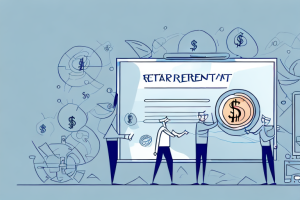In today’s fast-paced world, where the concept of work has evolved significantly, it’s important to pause and consider when it might be time to retire. Retirement is a major life event that can have a profound impact on your financial, emotional, and social well-being. To help you make this important decision, we have compiled a comprehensive guide that discusses various aspects of retirement planning and readiness.
The Benefits of Early Retirement Planning
Early retirement planning offers numerous benefits, allowing you to enjoy a comfortable and fulfilling retirement. By starting to plan early, you have more time to save and invest, giving your savings the potential to grow substantially over time. Additionally, early retirement planning helps you take advantage of different retirement accounts and tax benefits, maximizing your financial security during your golden years.
Another benefit of early retirement planning is the ability to set clear financial goals and create a realistic budget. By planning ahead, you can determine how much money you will need to save in order to maintain your desired lifestyle during retirement. This allows you to make informed decisions about your spending habits and make any necessary adjustments to ensure you are on track to meet your goals.
Furthermore, early retirement planning provides you with the opportunity to explore various investment options and strategies. You can research and choose investments that align with your risk tolerance and financial goals. This can help you diversify your portfolio and potentially increase your returns, providing you with a greater sense of financial security in retirement.
Signs that Indicate You’re Ready for Retirement
Retirement readiness doesn’t solely depend on your age or how much money you have saved. It’s essential to evaluate various factors to determine if you’re truly ready to retire. Signs that indicate you may be ready for retirement include reaching your desired savings goals, achieving financial independence, and being mentally and emotionally prepared for a significant lifestyle change. It’s crucial to assess both your financial and personal circumstances when considering retirement.
One additional factor to consider when determining retirement readiness is your health. Being in good physical health is important for enjoying your retirement years to the fullest. Assessing your overall well-being, including any chronic health conditions or potential future healthcare needs, can help you gauge if you’re ready to retire.
Another sign that you may be ready for retirement is having a clear vision of how you want to spend your time. Retirement offers the opportunity to pursue hobbies, travel, volunteer, or spend more time with family and friends. If you have a well-defined plan for how you want to fill your days and find purpose in retirement, it can be a strong indication that you’re ready to make the transition.
Financial Considerations in Retirement Decision-Making
One of the most critical factors to consider when deciding to retire is your financial situation. It’s important to evaluate your sources of income, such as Social Security benefits, pensions, and personal savings. Understanding your expenses and creating a post-retirement budget will help you determine if your finances can support your desired retirement lifestyle. By carefully planning your financial needs, you can make informed decisions about retirement timing and ensure a sustainable income throughout your retirement journey.
Planning for a Comfortable Retirement Lifestyle
Retirement is a time to enjoy the fruits of your labor and pursue activities that bring you joy and fulfillment. To plan for a comfortable retirement lifestyle, it’s crucial to envision your ideal retirement. Consider factors such as where you want to live, what hobbies or passions you want to pursue, and whether you want to continue working part-time. By aligning your retirement plans with your personal goals and aspirations, you can create a roadmap for a truly fulfilling retirement.
Understanding the Social Security Benefits and Retirement Age
Social Security benefits play a significant role in the retirement plans of many individuals. Understanding how Social Security works, including the factors that determine your benefits and your full retirement age, is essential. It’s important to consider various claiming strategies, such as delaying benefits, to maximize your Social Security income. Educate yourself about the intricacies of Social Security to make informed decisions that will impact your financial well-being in retirement.
How to Determine Your Retirement Readiness
Assessing your retirement readiness involves evaluating various aspects of your financial and personal life. Start by calculating your retirement savings, factoring in your expected expenses and income sources. Consider consulting with a financial advisor to conduct a comprehensive retirement readiness assessment. Additionally, take stock of your emotional and physical well-being, as these factors will influence your overall retirement experience. By understanding your financial and personal readiness, you can make a well-informed decision about when it’s time to retire.
Assessing Your Health and Emotional Well-being in Retirement Planning
Retirement planning is not solely about finances but also about your overall well-being. Take into account your health and emotional state when considering retirement. Ask yourself if you have the physical and mental resilience to enjoy your retirement years. Consider factors such as healthcare costs, long-term care options, and the ability to manage potential emotional challenges that may arise in retirement. By addressing these aspects, you can ensure a healthier and more fulfilling retirement.
Preparing for Life after Work: Managing the Transition to Retirement
The transition from a busy work life to retirement can be both exciting and challenging. Planning for this transition is crucial. Consider how you will spend your time and derive a sense of purpose after leaving the workforce. Develop a clear plan for managing the changes in your daily routine, social interactions, and sense of identity. By preparing for this transition, you can navigate the emotional aspects of retirement more smoothly and enjoy a fulfilling post-work life.
Exploring Different Retirement Options: Full-Time, Part-Time, or Semi-Retirement?
Retirement doesn’t necessarily mean completely stepping away from work. Many individuals choose to embrace alternative retirement options, such as part-time or semi-retirement. Explore these options and evaluate which one aligns with your goals and financial needs. Part-time work can provide additional income and social interaction, while allowing you to enjoy a more flexible schedule. By considering these alternatives, you can find a retirement plan that suits your unique preferences and circumstances.
Retiring Abroad: Pros and Cons of an International Retirement
Retiring abroad has become an appealing option for many retirees seeking adventure and a lower cost of living. However, it’s essential to carefully weigh the pros and cons of an international retirement. Consider factors such as healthcare access, language and cultural barriers, and taxation issues in the country of your choice. While retiring abroad can be an exciting and enriching experience, it requires thorough planning and consideration of all potential challenges and benefits.
The Importance of Having a Solid Financial Plan in Place before Retiring
Financial planning is a vital aspect of retirement readiness. Before retiring, it’s crucial to have a solid financial plan in place. This plan should include an analysis of your income sources, a detailed budget, and an investment strategy that aligns with your risk tolerance and retirement goals. Working with a financial advisor can provide valuable insights and guidance in developing a comprehensive financial plan that ensures long-term financial security.
Addressing Common Concerns about Retirement: Money, Health, and Purpose
Retirement often brings up concerns related to finances, health, and finding a sense of purpose. Addressing these concerns is essential for a smooth transition. Develop strategies to manage potential financial challenges, such as creating an emergency fund and considering long-term care insurance. Prioritize your health and proactively seek ways to maintain your physical and mental well-being. Finally, explore new hobbies, volunteer opportunities, or lifelong learning experiences to find meaning and purpose in your retirement years.
Building a Post-Retirement Budget: Managing Expenses on a Fixed Income
After retiring, you will likely rely on a fixed income generated from your savings, investments, and Social Security benefits. Building a post-retirement budget is crucial to ensure that you can meet your financial obligations and enjoy your retirement years without financial stress. Consider all potential expenses, including housing, healthcare, leisure activities, and day-to-day living costs. Make adjustments as necessary to ensure that your budget is realistic and sustainable over the long term.
Finding Meaning and Purpose in Retirement: Pursuing Hobbies and Volunteer Work
Retirement offers a unique opportunity to explore new interests, pursue long-neglected hobbies, or engage in meaningful volunteer work. Consider what activities bring you joy and a sense of fulfillment. Plan for these activities by allocating time and resources to pursue them in retirement. Whether it’s gardening, painting, traveling, or giving back to your community, finding meaning and purpose in retirement can greatly enhance your overall well-being and quality of life.
Navigating the Emotional Challenges of Retirement: Coping with Identity Loss and Loneliness
Retirement can bring about unexpected emotional challenges, including a sense of loss of identity and feelings of loneliness. It’s important to recognize and address these emotions. Seek support from friends, family, or professional counselors to navigate this transitional phase successfully. Engage in social activities, join clubs, or participate in community organizations to foster new connections and combat feelings of isolation. By being mindful of your emotional well-being, you can better navigate the emotional challenges that retirement may present.
The Role of Estate Planning in Securing Your Legacy after Retirement
Estate planning is a crucial aspect of retirement and beyond. Ensure that your estate plan reflects your wishes for asset distribution and provides for your loved ones. Consider working with an estate planning attorney to create or update your will, designate beneficiaries, establish trusts, and make healthcare and financial power of attorney arrangements. By addressing estate planning early on, you can secure your legacy and provide peace of mind for your family.
How to Stay Active and Engaged in Your Golden Years: Travel, Education, and More!
Staying active and engaged in your golden years is key to maintaining a fulfilling retirement lifestyle. Embrace opportunities for travel, whether exploring new destinations or revisiting old favorites. Engage in lifelong learning through classes, workshops, or educational travel experiences. Participate in fitness activities to stay physically active and prioritize your overall well-being. By embracing these experiences, you can make the most of your retirement years and enjoy a vibrant and enriching life.
Strategies for Maximizing Your Social Security Benefits in Retirement
Social Security benefits can be a significant source of income in retirement. To maximize your benefits, consider various strategies such as delaying claiming, coordinating spousal benefits, and leveraging the file-and-suspend strategy. By understanding the rules and complexities of Social Security, you can make informed decisions that maximize your benefits and enhance your financial security throughout retirement.
Balancing Financial Security with Enjoyment: Making Smart Decisions about Spending in Retirement
One of the challenges retirees often face is balancing financial security with enjoying their retirement years. It’s crucial to make smart decisions about spending to ensure that your finances last throughout retirement. Develop a sustainable withdrawal strategy from your retirement savings and be mindful of your budget and expenses. Find a balance between responsible financial management and allowing yourself to enjoy the fruits of your labor. By making thoughtful decisions about spending, you can achieve both financial security and a fulfilling retirement lifestyle.
By considering and addressing the various aspects discussed, you can gain a comprehensive understanding of retirement planning and readiness. Remember, retirement is a personal journey, and it’s important to reflect on your unique circumstances and goals. By taking the time to plan and evaluate your readiness, you can make a smooth transition into the next chapter of your life and enjoy a fulfilling and rewarding retirement journey.



